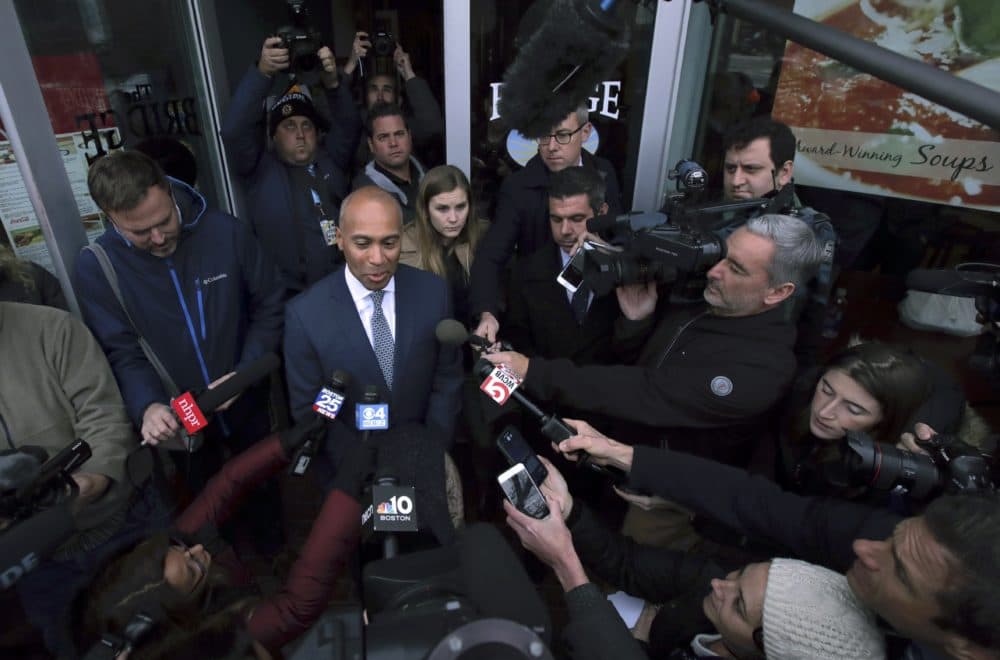Advertisement
What Deval Patrick Did At Bain Capital

Voters have seen this before: A former Massachusetts governor who worked at Bain Capital is running for president.
And like 2012 Republican nominee Mitt Romney before him, Democrat Deval Patrick faces questions about his tenure at the Boston investment firm.
"When I was co-chair of the Obama-Biden campaign in 2012, and there was all the attacks on Bain Capital, on account of Mitt Romney, I was asked about that," Patrick told reporters in Manchester, New Hampshire, Thursday, just hours after launching his campaign. "I didn't buy it then, and I don't buy it now."
What Patrick doesn't buy is the charge by some liberals that Bain Capital exemplifies ruthless capitalism. Political junkies might recall an Obama campaign ad featuring steel workers who blamed Bain Capital for wrecking their livelihoods.
One worker said the firm "was like a vampire. They came in and sucked the life out of us."
Patrick criticized Romney plenty during the 2012 race, but he did take a softer tone toward Bain than many Obama surrogates. In an appearance on MSNBC, he said, "Bain is a perfectly fine company. They've got a role in the private economy, and I've got a lot of friends there on both sides of the aisle."
A few months after leaving the governor's office in 2015, Patrick joined those friends at Bain Capital. He helped start a $390 million investment fund called Bain Capital Double Impact.
"The name Bain Capital Double Impact alludes to the idea of a 'double bottom line' that some businesses and others have introduced in the last two decades," said Shawn Cole, who teaches "impact" investing at Harvard Business School.
By "double bottom line," Cole means the bottom line everyone knows — money — and a second one — social good. The fund Patrick led invests in companies that focus on causes like improving the environment, health and education.
It's not charity; it's supposed to be capitalism with a conscience.
Advertisement
"What they do is they deliberately source investments that they believe have a social impact, and then Bain takes control of those companies and tries to improve their operation," Cole said.
The question is whether Democratic primary voters will accept the idea that Patrick's work at Bain Capital was noble, or at least a more socially responsible business model. The answer is maybe, according to former Romney adviser Eric Fehrnstrom.
On one hand, Patrick wasn't the boss at Bain, as Romney was, so Patrick may face less scrutiny. On the other hand, "Bain, for Deval Patrick, might be more of a problem because in Deval's case, it hurts him with Democratic primary voters, whereas Mitt only struggled with it in the general election," Fehrnstrom said.
Fehrnstrom added that in his estimation, Bain Capital was a net plus among Republican voters in Romney's primary. It's less likely that Bain can help Patrick win a Democratic nominating contest.
He also may have to defend other lines on his resume, including stints at oil company Texaco and the parent company of mortgage lender Ameriquest.
This segment aired on November 18, 2019.
